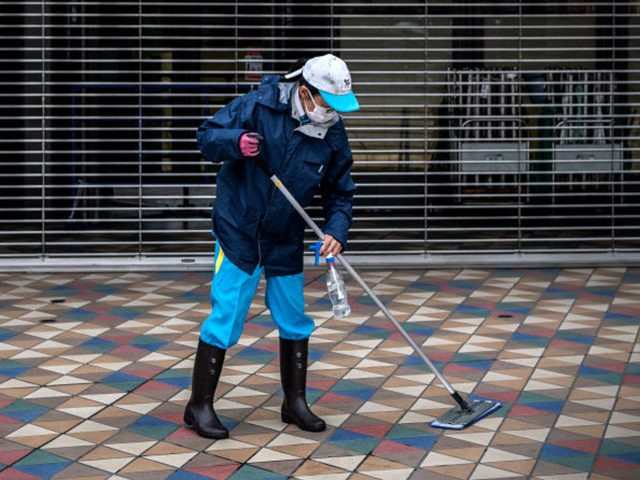The number of young, single Tokyo residents requesting professional cleaning services for their apartments has skyrocketed over the past year due to a pandemic phenomenon known as “garbage houses,” in which people allow trash to accumulate inside their homes for months.
The Tokyo branch of Rerise, a Japanese waste collection and cleaning company, told the Mainichi on Tuesday that the number of requests it has received for its services has doubled since the start of Japan’s coronavirus outbreak last spring.
“[T]he number of cleaning requests and consultations from general households in January and February 2020 was about 80 per month, but after March of the same year, when coronavirus infections spread, the number more than doubled to around 190,” the Japanese newspaper reported, adding that “Eighty percent of the clients are single people in their 20s to late 30s, and 70 percent of them are women.”
A single person typically turns their home into a “garbage house” by inadvertently carrying out the following steps according to the Mainichi:
First, the resident increases their activities at home, such as working where they live to prevent the spread of coronavirus infections, then they don’t eat out and use food delivery services such as Uber Eats, and then the garbage after eating accumulates in their apartments.
Many people began to put off throwing out their trash on a regular basis during the pandemic due to various reasons. Some people allow trash to pile up in their apartments, vowing to dispose of it all at once at a future time that never occurs.
“Others delay the cleanup in anticipation of calling in cleaners when they receive their salary bonus or other large amounts of income,” according to the newspaper. In some extreme cases, people will “use the garbage-filled bags to sleep on, or leave them in their home even when they are crawling with bugs.”
The “garbage house” phenomenon has been caused by a “distortion of society” during the pandemic in which people are spending too much time inside their homes and no longer feel a social responsibility to fulfill healthy rituals, such as cleaning, Rerise President Yosuke Kawakami told the Mainichi.
“People who stay at home or become economically unstable due to the coronavirus pandemic are under a lot of stress, which is thought to have caused a kind of illness where they cannot throw things away. I think that homes full of garbage is a problem triggered by the distortion of society,” Yosuke opined.
At least 70 percent of Rerise’s cleaning requests in Tokyo over the last year came from people who had been forced to call the company after receiving complaints from their landlords or neighbors over the foul odor caused by their cleaning negligence, which seems to underscore Yosuke’s theory.
“[T]here are also cases where people are forced to clean up after losing or seeing a fall in their income due to the pandemic, forcing them to move into their parents’ homes or apartments with lower rent,” the Mainichi noted.
The collective health of Japanese society has plummeted during the pandemic, according to the nation’s suicide statistics over the past year. Japan’s suicide rate jumped 16 percent year-on-year from July to October 2020. The three-month interval coincided with Japan’s second major coronavirus outbreak of the pandemic, according to a study published on January 15 by Tokyo’s Metropolitan Institute of Gerontology and Hong Kong University.
“People worry about COVID-19 [Chinese coronavirus]. But a lot of people have also committed suicide because they have lost their jobs; they have lost their income and couldn’t see the hope,” Japan’s administrative and regulatory reform minister, Kono Taro, told Reuters in January. A record-high number of Japanese schoolchildren also committed suicide in 2020 during a period that directly followed prolonged school closures due to the pandemic.

COMMENTS
Please let us know if you're having issues with commenting.